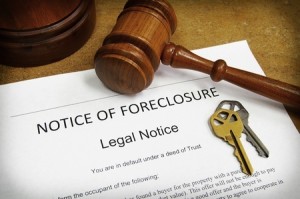Chapter 13 bankruptcy is a legal process by which you create a plan to pay off many (but not necessarily all) of your debts within five  years. Chapter 13 bankruptcy is a reorganization of debt. Unlike other debt reduction plans set out by some otherwise unscrupulous debt reduction firms, a chapter 13 is monitored by the bankruptcy court. A chapter 13 also forces all the creditors to accept the courts plan for debt reduction. Depending on the chapter 13 plan, once the repayment period concludes any remaining debt left unpaid discharges and forgives forever. When considering a chapter 13 make sure you consult a chapter 13 bankruptcy attorney. This is so because many bankruptcy attorneys help people file chapter 7 but not so many are actual chapter 13 bankruptcy attorneys.
years. Chapter 13 bankruptcy is a reorganization of debt. Unlike other debt reduction plans set out by some otherwise unscrupulous debt reduction firms, a chapter 13 is monitored by the bankruptcy court. A chapter 13 also forces all the creditors to accept the courts plan for debt reduction. Depending on the chapter 13 plan, once the repayment period concludes any remaining debt left unpaid discharges and forgives forever. When considering a chapter 13 make sure you consult a chapter 13 bankruptcy attorney. This is so because many bankruptcy attorneys help people file chapter 7 but not so many are actual chapter 13 bankruptcy attorneys.
Who can file a Chapter 13 bankruptcy:
If you are ineligible to file a Chapter 7 bankruptcy because you are over the income threshold, or because you have filed a chapter 7 less than 8 years ago you will have to file a chapter 13. The most important requirement of filing a chapter 13 is that you have employment and can make the chapter 13 plan payments.
Chapter 13 Process:
You chapter 13 bankruptcy attorney will start the process by gathering documents. Your chapter 13 bankruptcy attorney will need to see tax returns, pay stubs (if you are employed), titles to any vehicles you own, as well as bank statements, deeds to any real estate, and other documents depending on the specifics of your case. Your attorney will prepare a bankruptcy petition that includes all the relevant information for your case, including a listing of the things you own (called assets) and a list of all the people and companies you owe money to (your creditors). It will also contain information about your income and expenses, and tax information for the past two years. After preparation and your signing of the document, your attorney will file it with the court. A month later, you will attend a brief hearing. This is a “341.” Here your bankruptcy trustee will ask you a few questions. Your attorney will then prepare a “plan”. This plan describes how much money you will pay each month and how it distributes to your creditors. For the plan to work, it must pay off your secured creditors a percentage (usually at least 90%) within five years. Once the plan confirms, you make monthly payments to the Trustee. Your Trustee will then directly pay your creditors. Once the plan finishes, your remaining debts discharge.
Large Debt Amounts in Chapter 13:
Yes. So once the repayment plan confirms, the amount of debt is immaterial. The type of debt matters for how the plan is constructed (secured debt, such as mortgages or cars and priority debt like back taxes or child support must be included in the plan). Unsecured debt is not put in the plan. Those debts discharge at the end, with the exception of student loans. Student loans are not ordinarily dischargeable in either Chapter 7 or Chapter 13.
Can I keep my Property:
Yes. Most people assume that their property forfeits in a bankruptcy proceeding, but this is not the case. Many kinds of property, including wages, household furnishings, clothing, cars, and guns are “exempt”, meaning the trustee cannot seize them. In terms of property that secures a loan (home for a mortgage, car for an auto loan, etc.), you have two options. You may either surrender the property, or you may keep it, as your plan will pay off the creditor. Your chapter 13 bankruptcy attorney will go over this with you.
Benefits of filing a Chapter Bankruptcy:
The largest benefit is peace of mind. After filing, your creditors will no longer be able to harass you about your debts. If you have garnishments, the garnishment will cease. You will be secure in the knowledge that your secured debts are being paid every month through your plan payments and that at the end of the plan, you will have a fresh start. Also, if behind on your home the arrearage becomes part of the plan. This allows you to keep your home.
Contact a Chapter 13 Bankruptcy Attorney:
If you are considering bankruptcy a call to a chapter 13 bankruptcy attorney at Tulsa County Lawyers Group is the answer. The call is free, and you will get answers to your bankruptcy questions within moments. Call our Tulsa Lawyers at 918-379-4864.
